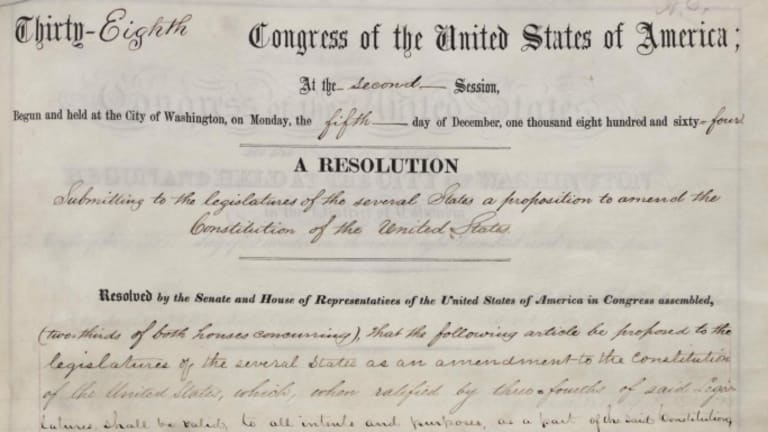About Publications Library Archives
heritagepost.org

Preserving Revolutionary & Civil War History

Preserving Revolutionary & Civil War History

Author: Congress of the United States
Date:1864
Annotation:
The Emancipation Proclamation freed only those slaves in states still at war. As a wartime order, it could subsequently be reversed by presidential degree or congressional legislation. The permanent emancipation of all slaves therefore required a constitutional amendment.
In April 1864, the Senate passed the Thirteenth Amendment to abolish slavery in the United States. Opposition from Democratic Representatives prevented the amendment from receiving the required two-thirds majority. If McClellan and the Democrats had won the election of 1864, as Lincoln and most Northerners expected in the summer, the amendment would almost certainly have been defeated and slave emancipation repudiated as a war aim. Only after Lincoln was reelected did Congress approve the amendment. Ratification by the states was completed in December 1865.
Document:
Article XIII.
Sec. 1. Neither slavery nor involuntary servitude, except as a punishment for crime, whereof the part shall have been duly convicted, shall exist within the United States, or any place subject to their jurisdiction.
Sec. 2. Congress shall have power to enforce this article by appropriate legislation.
Source: Gilder Lehrman Institute
Additional information: Thirteenth Amendment Resolution